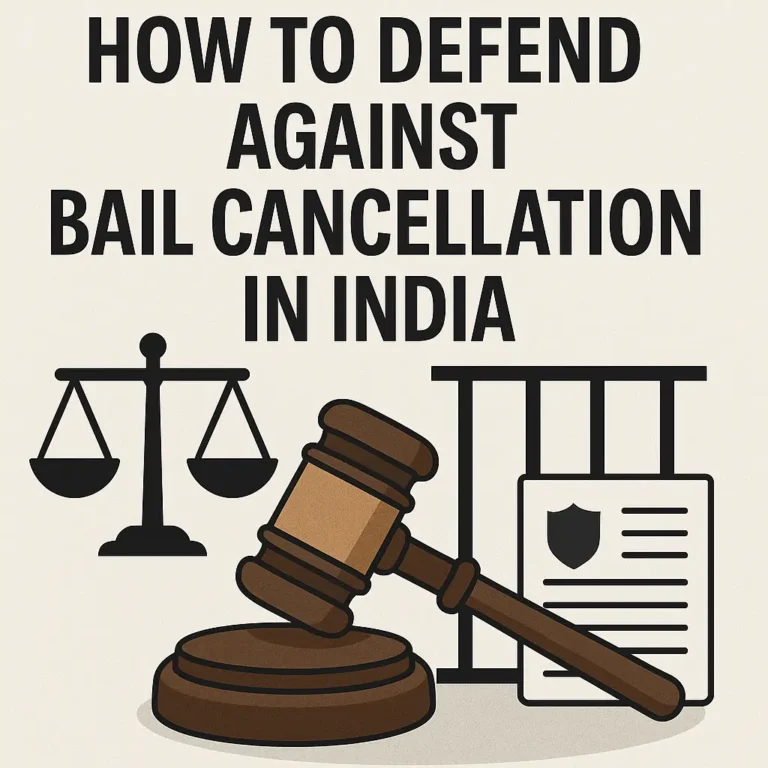Environmental law in Kurukshetra, like in many other regions, plays a crucial role in preserving the natural and historical richness of the area. When individuals or organizations are accused of violating these laws, they may face legal proceedings, including the possibility of bail. Understanding the nuances of bail conditions in environmental cases is essential for legal practitioners, accused parties, and the general public.
Understanding Bail Conditions in Environmental Cases in Kurukshetra
What is Bail in Environmental Law Context?
Bail is a legal mechanism that allows an accused person to be released from custody, usually under certain conditions, while awaiting trial or further legal proceedings. In environmental cases, bail conditions may be specifically tailored to ensure ongoing protection of the environment and compliance with environmental laws.
Key Factors Influencing Bail Decisions in Environmental Cases
When determining bail conditions in environmental cases in Kurukshetra, several factors are considered:
Severity of the Environmental Offense
- The nature and extent of the alleged environmental harm play a significant role. More severe cases may lead to stricter bail conditions or even denial of bail.
History and Conduct of the Accused
- The accused’s past compliance with environmental laws and regulations is assessed. A history of violations may negatively impact bail terms.
Potential for Recurrence
- The likelihood of the accused repeating the environmental violation is a critical consideration.
Compliance Assurance
- Bail conditions may include measures to ensure the accused complies with environmental laws during the bail period.
Types of Bail Conditions in Environmental Cases
Bail conditions in environmental cases can vary but often include:
Restricted Activities
- Limitations on certain activities that may pose further environmental risks.
Monitoring and Reporting
- Requirements for regular check-ins with authorities or environmental monitoring agencies.
Financial Guarantees
- Bonds or financial guarantees to cover potential environmental damages.
The Legal Process and Considerations in Kurukshetra
Navigating the legal system in Kurukshetra, especially in the context of environmental law, requires understanding the local regulations and judicial procedures.
The Role of Legal Representation
- Accused parties often benefit from legal representation to navigate the complexities of bail conditions and environmental law.
Community and Environmental Impact
- The potential impact of the environmental offense on the local community and ecosystem is a critical factor in bail decisions.
Conclusion: The Balance Between Legal Enforcement and Environmental Protection
In Kurukshetra, bail conditions in environmental cases serve as a vital tool for balancing legal enforcement with the need to protect the environment. These conditions ensure that while individuals have the right to a fair legal process, the well-being of the environment is not compromised.
FAQ (FREQUENTLY ASKED QUESTIONS)
1. What are environmental cases in Kurukshetra?
- Environmental cases involve legal proceedings related to the violation of environmental laws and regulations in Kurukshetra.
2. What is bail in the context of environmental law?
- Bail in environmental law refers to the temporary release of an individual accused of an environmental offense, usually under certain conditions.
3. How are bail conditions determined in environmental cases?
- Bail conditions are determined based on the severity of the offense, accused’s history, potential for recurrence, and the need to ensure compliance with environmental laws.
4. Can bail be denied in environmental cases?
- Yes, bail can be denied if the court deems the accused poses a significant threat to the environment or public safety.
5. Are financial guarantees a common bail condition?
- Financial guarantees can be a condition of bail to ensure coverage for potential environmental damages.
6. What role do legal representatives play in bail proceedings?
- Legal representatives help navigate the complexities of bail conditions and advocate for the accused’s rights.
7. Can bail conditions be modified?
- Yes, bail conditions can be modified based on new evidence or changes in circumstances.
8. What happens if bail conditions are violated?
- Violating bail conditions can lead to revocation of bail and potential arrest.
9. Are environmental bail conditions different from other bail conditions?
- Environmental bail conditions are tailored to address specific environmental protection needs.
10. What is the purpose of bail conditions in environmental cases?
- The purpose is to ensure compliance with environmental laws and prevent further harm to the environment.
11. How does the court assess the risk of recurrence?
- The court assesses the risk based on the accused’s past behavior and the nature of the offense.
12. Can public opinion impact bail decisions in environmental cases?
- While public opinion may raise awareness, bail decisions are based on legal criteria and evidence.
13. Are there special courts for environmental cases in Kurukshetra?
- Some regions have specialized environmental courts, but it varies by jurisdiction.
14. How long can bail conditions last in environmental cases?
- Bail conditions last until the conclusion of the trial or as determined by the court.
15. What are some examples of restricted activities as bail conditions?
- Examples include prohibition from certain industrial activities or entering specific environmental areas.
16. Is community service ever a condition of bail in these cases?
- Yes, community service, especially in environmental restoration, can be a bail condition.
17. How are bail amounts determined in environmental cases?
- Bail amounts are based on the severity of the offense, financial status of the accused, and potential risks.
18. Can environmental NGOs influence bail conditions?
- NGOs may provide information or expert opinions, but they do not directly influence bail conditions.
19. What is the role of environmental monitoring in bail conditions?
- Monitoring ensures compliance with bail conditions and ongoing protection of the environment.
20. Can bail conditions include travel restrictions?
- Yes, travel restrictions can be imposed to prevent the accused from absconding or causing further environmental harm.
21. How does the court ensure fairness in setting bail conditions?
- The court considers all relevant factors and adheres to legal standards to ensure fairness.
22. Can bail conditions address potential future environmental harm?
- Yes, conditions are often designed to prevent any potential future environmental harm.
23. Are there any educational programs as part of bail conditions?
- In some cases, educational programs related to environmental conservation may be included.
24. How does the severity of environmental harm affect bail conditions?
- Greater harm typically leads to stricter bail conditions or higher bail amounts.
25. Can an individual appeal against the set bail conditions?
- Yes, bail conditions can be appealed in a higher court.
26. Do bail conditions in environmental cases differ across India?
- Yes, bail conditions can vary based on local laws and judicial discretion.
27. How does the court balance environmental protection and the accused’s rights?
- The court aims to protect the environment while ensuring the accused’s legal rights are not infringed upon.
28. Are there any specific bail conditions for corporate entities in environmental cases?
- Corporate entities may face specific conditions like operational restrictions or corporate monitoring.
29. Can bail conditions include a requirement to rectify environmental damage?
- Yes, conditions may include rectification or remediation of the caused environmental damage.
30. How does the public get informed about bail conditions in high-profile environmental cases?
- Information is typically made public through court records or media coverage, respecting confidentiality and legal norms.













